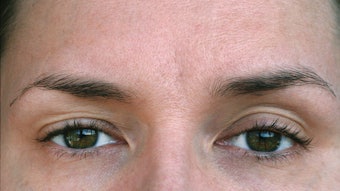
Laser treatments have become a staple of the medical aesthetics industry. More than 2.5 million laser treatments—including laser hair removal, leg vein treatments, and ablative and nonablative skin resurfacing—were performed in 2016, according to the American Society of Plastic Surgeons (ASPS) 2016 statistics.
Given the growing demand for laser services, it stands to reason that most practices want to offer these treatments. However, acquiring the proper equipment is expensive— standalone lasers and multi-function platforms can cost as much as $250,000. It is also complicated. There are numerous platforms available, each with its own unique benefits and characteristics, and choosing the right device for your patient base is only the beginning. You must also understand the laser contract offered by the manufacturer.
Laser contracts vary widely and include unique provisions. Understanding these provisions—and how they may affect the long-term cost and care of the equipment—can help you in your purchasing decision.
Following are some of the key provisions a typical laser contract covers.
Marketing support. Carefully note the amount of marketing support the manufacturer offers. When you make an investment of this size, it is critical to have as much support as possible. If a manufacturer guarantees marketing assistance in writing, this will often increase the price of the laser; however, it is well worth the expense. If a company verbally offers marketing support but has not included this in the contract, you can ask that a written provision be added outlining the assistance you will receive as the purchaser.
Training options. You and your staff will require training on the new device. But who pays for this? Some companies offer extensive in-office training followed by online webinars and support as part of the purchase price; others require buyers to pay a fee for initial and ongoing training. This is a provision that can be negotiated.
System upgrades. Practices should ask how upgrades are handled and make sure this information is included in the contract. If a device manufacturer develops a second-generation device or upgrades the system’s software with new features, some companies will automatically upgrade existing systems, add the new features to your existing system, or allow you to swap your device for the next-generation version.
Recertification fees. This is a contractual provision dictating that before a used laser can be resold on the open market, the manufacturer must inspect the machine to “certify” that the laser is in working order and operating to the manufacturer’s standards. The fee that the manufacturer charges for this service can be quite high—$50,000 or more—and it must be paid before the machine can be supported at a new customer site.
There are valid reasons for having this fee in place, notes Marisa Trasatti, general counsel for laser manufacturer Sciton: “Recertification ensures that the device is safe for use on your patients and returns the unit to manufacturer-safe specifications. There is a growing secondary market for used lasers that are potentially hazardous to patients and physicians alike. Given the current malpractice climate, using a laser that may not have been properly maintained or was never recertified to the manufacturer's original specifications puts a physician’s license and reputation at serious risk should an adverse event occur.”
Carefully review the recertification provision, as it represents a significant future cost that may cut into the device’s resale value and make it more difficult to resell on the open market. Keep in mind, some manufacturers provide a warranty and clinical training as part of the recertification fee, which may actually enhance the machine’s resale value.
In some instances, you can negotiate recertification fees—for example, when a practice is introducing a laser treatment in a market where it has not yet proven to be successful. And some laser manufacturers will even offer to repurchase the device after a period of time if customers can show that their market is not responding to the product offerings. These are all things that must be negotiated into the contract before the sale.
Resale restriction. Another contractual provision you should be aware of is the resale restriction, which dictates that the customer cannot resell a laser without the manufacturer’s approval, or that the laser must be sold back to the manufacturer at a discounted rate. This provision can limit a practice’s options when it comes time to upgrade to a new technology.
As with recertification fees, a resale restriction can be negotiated. This provision should be clearly explained, so that you fully understand your future rights.
Service clauses and warranties. Laser systems, like other large equipment purchases, will remain under manufacturer warranty, but the length of the warranty can vary widely. The purchaser must make sure that the service clauses and warranties in the contract are sufficient. Although commonplace, let’s not forget that these machines actually fire lasers. It wasn’t that long ago that this technology was science fiction, not reality. These are very sophisticated, sensitive pieces of machinery, and no matter how reputable the company, the machine will at some point need to be repaired and serviced.
Customers need to know exactly what happens when the machine breaks, including what is covered (and what is not) under the warranty and what type of customer support is available to the practice. It is crucial to get this information in writing to ensure timely, cost-effective service for your laser. In the case of warranties, practices can often negotiate the length and type of coverage.
Laser treatments can be extremely lucrative, but they do require a substantial investment. Therefore, it is in your best interest to thoroughly investigate devices and make sure you understand all contract provisions before making a purchasing decision.
Alex R. Thiersch, JD, is a Chicago-based healthcare attorney who represents medspas, plastic surgeons and other aesthetic medical professionals. He is the founder and director of the American Med Spa Association (AmSpa) and a partner at ByrdAdatto Law Firm. Contact him at [email protected].
Image copyright Getty Images











